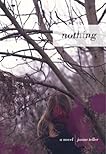 Ship Breaker by Paolo Bacigalupi
Ship Breaker by Paolo BacigalupiMy rating: 5 of 5 stars
Garnering considerable buzz (Prinz Award, National Book Award Finalist) Paolo Bacigalupi's dysotopian YA novel Ship Breaker tweaked my curiosity enough to read it. I was lukewarm to the idea of it and overlooked it for a few months. Boy was I being foolish. This is a terrific book for middle school readers.
Actually, what grabbed my interest is the fact that the author has received notable attention not only for this novel but for his debut novel which is in the adult sci-fi realm, The Windup Girl (Hugo and Nebula Awards as well as positive ink from Time Magazine). More curious about the writer than the stories, I ordered both and started with Ship Breaker.
I am a very picky sci-fi reader. By that I mean it isn't the first genre I turn to, or even the second, and it ends up being the only genre I do not muscle through and finish if it does not appeal to me. I have no qualms putting down a sci-fi novel. I completely respect it and do enjoy it...when it is done well. That said...I did not put Ship Breaker down when given a choice and found myself looking forward to picking it back up.
One of the things I like most about Ship Breaker is that it could almost be set in any time period--the core story (poor boy helps poor-little-rich-girl helps poor-boy) could easily be fashioned into a western or any other existing sub-genre. The story is strong.
Set on the Gulf Coast deep into the future--long after America has been chewed apart by drastic shifts in nature (caused by human negligence)--we follow the hard-edged life of a 14 year-old named Nailer who survives by crawling through dangerously cramped compartments on beached and otherwise useless oil tankers. He pulls anything worth salvaging which could be melted down and sold...copper wire most notably.
Nailer lives with the dregs in a cut-throat society. The world has hurtled into two volatile and drastic halves--the haves and the have-nots. Both have developed significant venom. The have-nots live in ramshackle huts slapped together with cardboard, aluminum, hubcaps...basically, garbage. They sleep on the ground in the elements and mark themselves with burns and tattoos and their salvage zones with etched symbols to demonstrate their allegiances or claims. And we're not even certain that any of the Haves even know the Have-Nots exist...their domain isn't even marked on a map correctly.
Think the "Housewives of Beverly Hills" not knowing the names of anyone making a living in the seediest and most vicious neighborhood gang in the country--why would they know of them? This is the separation which exists between the two worlds.
The awards and positive ink which Ship Breaker has earned comes as no surprise--this is a book males and females can each appreciate. Filled with equally strong (and vulnerable) male and female characters, each understands that there are only two ways to survive in this primal every-man-for-himself world: luck or loyalty.
I love that the book functions on the foundation of loyalty. For every story resolved by the flash of teeth from a magical vampire or in the swallowing of Friar Lawrence's distll'd liquor, there are those which emerge like Ship Breaker which allows human beings to sort out extraordinary problems with human tools. I felt the same way at the end of The Lord of the Rings as I did at the end of Ship Breaker...no one gets out of that world alive without either luck or loyalty.
And like a lot of things in life, why worry about the things you can't control?
In the end, this is a great book for your middle school bookshelf because the story alone will absolutely please your YA readers. It is exciting. However, based on the fact that your kids will read a great story based and built on that great human virtue loyalty I give it five stars (if I gave out stars) and two thumbs up (if I gave out thumbs).
View all my reviews















